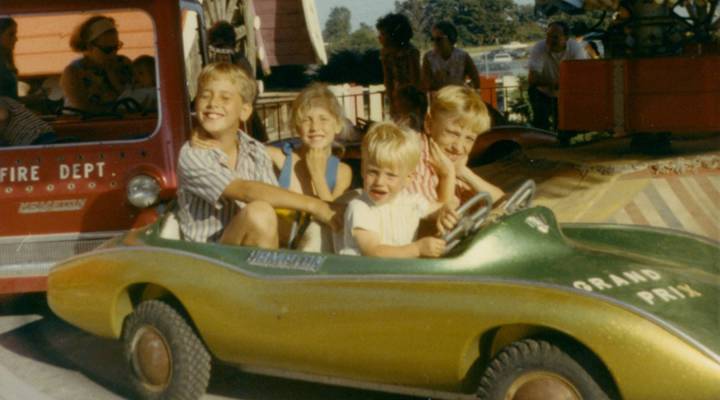
How road trips changed America

An estimated 46.9 million Americans will travel 50 miles or more this year to celebrate the Fourth of July, according to the travel organization AAA. That’s the most in the 18 years that they’ve been tracking it. AAA says of those 46.9 million, 39.7 million Americans are planning a road trip. Writer Richard Ratay has a new book out on the history of family road trips called, “Don’t Make Me Pull Over.” He talked with Marketplace host Kai Ryssdal about how road trips have changed the country and how road trips themselves have changed. The following is an edited transcript of their conversation.
Kai Ryssdal: This is really about how America used to travel? Because we just travel differently now right?
Richard Ratay: That’s right. With the coming of airline deregulation in 1978 under the Carter administration, in the 1980s everybody started flying everywhere. And with the advent of personal electronic devices of course they’re just so omnipresent in all of our lives. You might all be together in that same car but we’re all off in our own separate little worlds and that’s profoundly changed the road trip experience.

Jacket design for “Don’t Make Me Pull Over: An Informal History of the Family Road Trip” by Stephen Brayda
Ryssdal: It has to be said that you know the road trip was good for business right? I mean you put a gas station next to a highway exit or you put a five-and-dime you know someplace close to the highway you’re going to be doing all right. There are businesses that cater to this kind of travel?
Ratay: Oh absolutely. And that’s where we saw the rise of America’s great chains. You know chains like Howard Johnson and of course the hotel chains, Holiday Inn and Ramada Inn, these great chains were built on people traveling America’s highways.
Ryssdal: A word here for the highway rest stop and rest locations on America’s highways.
Ratay: Yeah. Well uh —
Ryssdal: Well my word for them is that they’re always so gross.
Ratay: (Laughter) Yeah well you know some of these state run stops that are hurting for budgets and aren’t adequately serviced anymore. But yeah, you know the genesis of rest areas actually began in Michigan. There was a very thoughtful public highway department employee who came across a traveling family trying to have their own picnic at the side of the road and you know they were sitting on rocks and stumps and looked very uncomfortable. And the idea kind of stuck with him. And so one weekend he and a road crew knocked together a couple of picnic tables and then they sat him up in that very area of the road where he had seen this family before and set up America’s first rest area.
Ryssdal: Do families still road trip? I mean does it still happen?
Ratay: Well there’s actually been evidence showing that millennials are now returning to the road trip experience. Of course air travel has become very frustrating. It’s become expensive, there’s all these unexpected delays and cancellations. And so, millennials are looking for an alternative. They’re coming back to the road trip. But as we discussed, the road trip just isn’t the same. You know, many of those roadside attractions that we used to stop at have gone. And again, we’re kind of off in our own little worlds. It’s not the same shared family experience that it once was.
There’s a lot happening in the world. Through it all, Marketplace is here for you.
You rely on Marketplace to break down the world’s events and tell you how it affects you in a fact-based, approachable way. We rely on your financial support to keep making that possible.
Your donation today powers the independent journalism that you rely on. For just $5/month, you can help sustain Marketplace so we can keep reporting on the things that matter to you.












